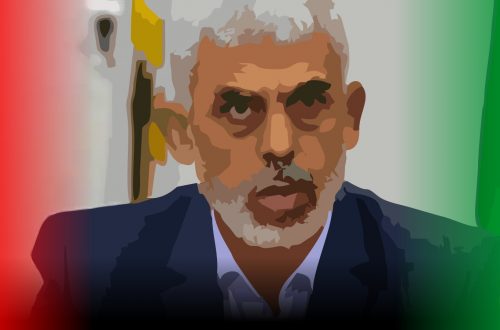Guest post by Judeosphere
Professor Joel Kovel—an outspoken critic of Israel and author of the book Overcoming Zionism—has been dismissed from his position as the Alger Hiss Chair in Social Studies at Bard College in New York state.
Kovel had taught at Bard since 1988. He did not hold tenure, but the Bard administration sent him a letter two weeks ago informing him that they would not renew his contract.
Predictably, Kovel released an OLO (Open letter of Outrage), which states: “This document argues that this termination of service is prejudicial and motivated neither by intellectual nor pedagogic considerations, but by political values, principally stemming from differences between myself and the Bard administration on the issue of Zionism.”
However, an article in Inside Higher Education reports:
Others suggest, however, that Kovel was treated the way many non-tenured professors are being treated these days as colleges retrench — and that mixed student reviews of his organizational skills in the classroom may have hurt him more than his politics.
While Bard officials did not respond to inquiries, President Botstein did send Kovel a letter that included in it permission to release it, which Kovel did at this reporter’s request. In the letter Botstein notes that Bard is eliminating a number of part-time positions to try to preserve full-time professorships, and that — had finances remained “flush” — Kovel’s contract probably would have been renewed.
“To take what is self-evidently a result of economic constraint and turn it into a trumped-up case of prejudice and political victimization insults not only your intelligence but the intelligence of your readers,” Botstein writes. He goes on to thank Kovel for teaching at Bard and to say that he was never offended by having someone with his views on the faculty. “I am delighted that you hold views that many consider wrong or dangerous. You are not as controversial as you would like to believe.”
Still, Kovel claims to have ample evidence that he is a victim of a Zionist plot to silence him, noting that:
In January, while I was on a Fellowship in South Africa, President Botstein conducted a concert on campus of the Jerusalem Symphony Orchestra, which he has directed since 2003. In a stunning departure from traditional concert practice, this began with the playing of the national anthems of the United States and Israel, after each of which the audience rose. Except for a handful of protestors, the event went unnoticed. I regarded it, however, as paradigmatic of the “special relationship” between the United States and Israel, one that has conduced to war in Iraq and massive human rights violations in Israel/Palestine. In December, I organized a public lecture at Bard (with Mazin Qumsiyeh) to call attention to this problem. Only one faculty person attended; the rest were students and community people; and the issue was never taken up on campus.
Well, if that isn’t proof of conspiracy, I don’t know what is. But wait, there’s more!
The evaluation committee included Professor Bruce Chilton, along with Professors Mark Lambert and Kyle Gann. Professor Chilton is a member of the Social Studies division, a distinguished theologian, and the campus’ Protestant chaplain. He is also active in Zionist circles, as chair of the Episcopal-Jewish Relations Committee in the Episcopal Diocese of New York, and a member of the Executive Committee of Christians for Fair Witness on the Middle East.
Ah, the insidious Christians for Fair Witness on the Middle East… You can read here a New York Times profile of the organization and its founder, a Roman Catholic nun:
In the rancorous and relentless debate on the Middle East conflict, Sister Ruth stands as a sui generis player. She has little contact with Jewish advocacy groups, none with the American Israel Public Affairs Committee lobby. She disassociates herself from Christian Zionists of the theological and political right. Even while defending Israel’s defensive measures, including the separation barrier, she openly criticizes its occupation of the West Bank and laments Palestinian suffering.
Lastly, Kovel offers this parting shot:
If the world stands outraged at Israeli aggression in Gaza, it should also be outraged at institutions in the United States that grant Israel impunity. In my view, Bard College is one such institution. It has suppressed critical engagement with Israel and Zionism, and therefore has enabled abuses such as have occurred and are occurring in Gaza.
That statement might have had more impact, were it not for the fact that Bard just announced this week a series of joint programs with Al Quds University. As The Times reports: “Bard anticipates complaints from some American Jews unhappy because Al Quds is a Palestinian institution partly in Jerusalem — which many Jews consider the indivisible capital of Israel — and because Al Quds is no stranger to radical Palestinian politics.”
Indeed, an article in The New York Jewish Week reports:
Some alumni have objected to the venture. Objections have also come from figures outside the Bard community, including Daniel Pipes, the right-of-center scholar who directs the Middle East Forum.
“Al-Quds is a problematic university,” Pipes said, referring to allegations that the school has hosted student branches of Hamas and Islamic Jihad and that campus activities have honored terrorists. “It’s worrisome that there’s this enthusiastic white-washing of Al-Quds.”
Morton Klein, president of the Zionist Organization of America, pointed out that much of the university’s official Web site was devoted to denying the Jewish connection to Jerusalem — something he called a lie and a disgrace.
“I expect any university to tell the historic truth about any issue they deal with,” Klein said. “No university should be a propaganda mill to promote a political agenda.”
But the article also notes:
Although Botstein and others at Bard described the venture as non-political, they suggested that improving education among the Palestinians — and exposing them to the values of American academia — would contribute to a future democratic state….“If you can’t engage on an equal basis in education and culture, where is the hope?” Botstein asked after spelling out his own, “impeccable” Zionist credentials. “Where is the future outside of war and violence? That would be my question.”
And The Times adds:
Al Quds expects some Palestinians to resent the endeavor as vaguely colonialist. And the collaboration by two such disparate institutions is bound to be complicated. “In Palestinian schools, students are taught the so-called right answer to every question,” Mukhles Sowwan, who runs the Nanotechnology Research Laboratory at Al Quds University, said. “But real education is more about questions than answers. We need to teach our students how to think creatively and critically, and I hope Bard will help us with that.”
I find it comforting to know that there are academics on both sides of the Israeli-Palestinian divide whose definition of “critical engagement” is quite different from the likes Joel Kovel.


